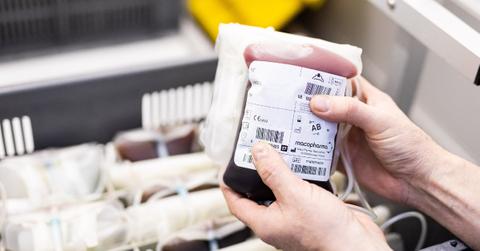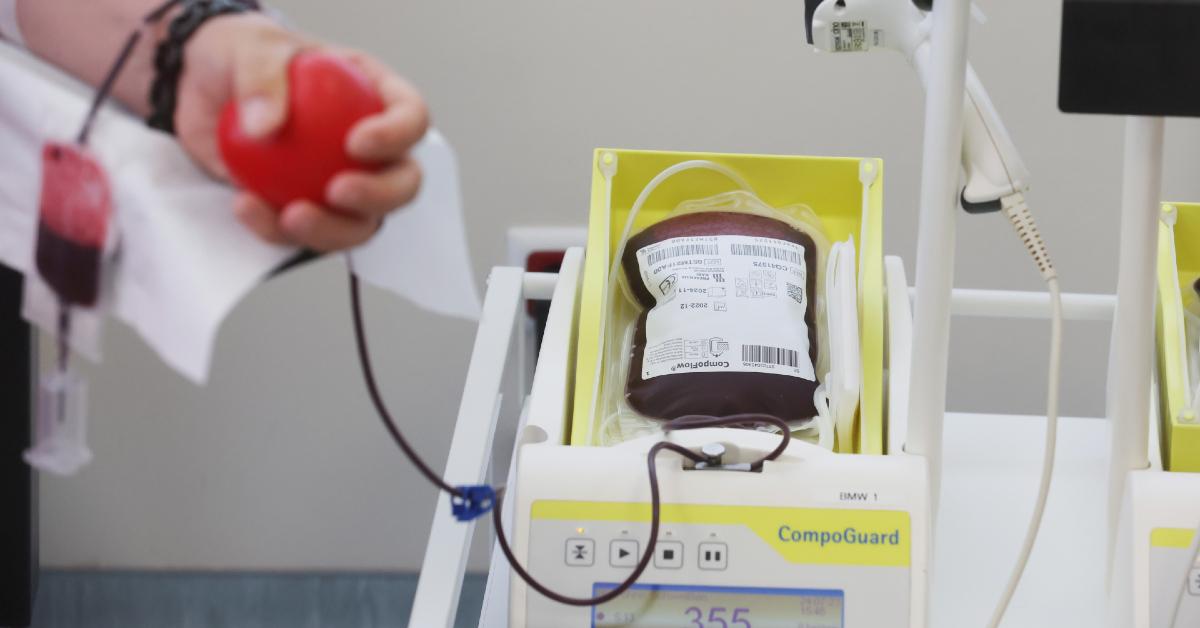Getting the Wrong Blood Type During a Transfusion Can Be a Deadly Mistake
Published Jan. 2 2024, 3:40 p.m. ET

The Gist:
- Blood transfusions have been practiced for hundreds of years.
- Advancements in the medical field have led to specific practices that make transfusions safer for patients.
- The importance of blood types cannot be overlooked and transferring an incorrect type into someone's body could result in death.
Even with universities firing professors for being "too hard" on students in courses that are the necessary building blocks for medical careers, it's difficult to argue that there has ever been a better time in human history for a patient to seek medical assistance. Take blood transfusions, for instance: Even though they've been successfully performed for hundreds of years, they've become more developed over time.
But what happens if you, as a patient, get the wrong blood type during a transfusion?
What happens if you get the wrong blood type during a blood transfusion?
Not all blood is the same; this is a fact you might be privy to even if you've never been to a doctor or stayed away from watching any type of medical dramas growing up and just dug into a user manual for a video game, but is it really dangerous to use the wrong blood for a transfusion?

Or if the incorrect blood is used, does the body ultimately just reject it and the body's host blood cells overpower it and it's not big deal? Well, as it turns out, it's a pretty darn big deal. According to Vinmec, putting the wrong blood type into a person's body can result in extreme illness, shock, or even death.
According to the CDC, one such reaction that could occur as a result of incorrect blood types being using in a transfusion is an acute hemolytic transfusion reaction, otherwise known at AHTR.
The government health agency writes: "An acute hemolytic transfusion reaction is the rapid destruction of red blood cells that occurs during, immediately after, or within 24 hours of a transfusion when a patient is given an incompatible blood type. The recipient’s body immediately begins to destroy the donated red blood cells, resulting in fever, pain, and sometimes severe complications such as kidney failure."
The CDC listed a series of "blood safety basics" which includes screening for various diseases like hepatitis B, C, HIV Types 1 and 2, HTLV, syphilis, Chagas disease, CMV, babesia, and bacterial contaminations.
AHTR isn't the only problem that could occur from using the wrong blood in a transfusion.
The CDC also states that there are a slew of other reactions that can happen if the wrong blood type is used in a transfusion. They can be as mild as allergic reactions that are only visible and result in irritations on an epidermal level.
A less severe type of reaction that AHTR, DHTR is a "delayed hemolytic transfusion reaction" which happens between a 24 hour to 28 day window after a blood transfusion takes place where the recipient body "develops antibodies to read blood cell antigens."
Respiratory reactions can also occur, along with the accidental transmission of a parasite from the donor's blood to the recipient, as well as "transfusion-associated circulatory overload" which can happen as a result of "an excessively high infusion rate."
The symptoms of this: "difficulty breathing, cough, and fluid in the lungs."
So if you were sitting down and watching Mad Max: Fury Road and wondering just how in the world Tom Hardy and Charlize Theron's characters were managing to stay alive while slinging their blood around all over the place conducting transfusions like they were trading Pokémon cards, just know that it's not that simple.